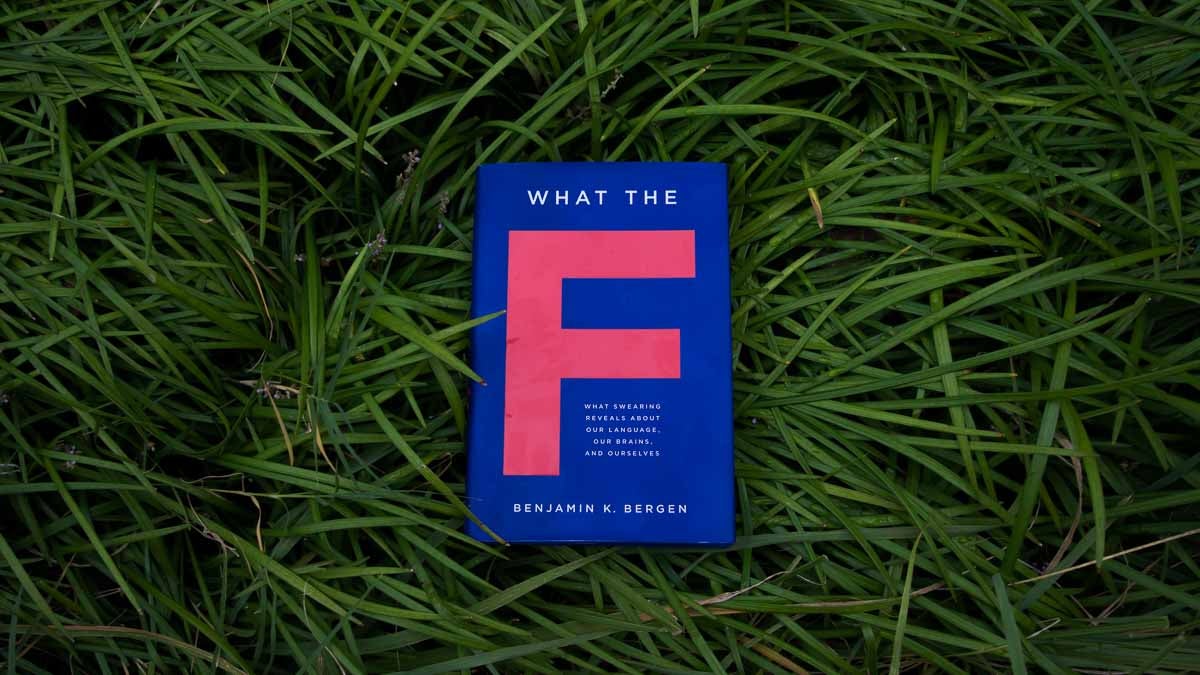What the f@#$ is up with the science of cursing
Listen
In the book "What The F: What swearing reveals about our language
What do you say when you stub your toe? Chances are, it has four letters and starts with an F. But you might also say that word to emphasize how hot it is. Or when you’re really scared, surprised, or happy.
In his new book “What The F: What swearing reveals about our language, our brains and ourselves,” cognitive scientist Benjamin Bergen explores how cursing impacts our brains and our ability to understand language.
“Profanity has relatively reliable effects on human physiology,” said Bergen. “Hearing or reading a swear word leads to an increase in heart rate, blood pressure, pupil dilation, all part of the fight or flight reflex.”
Bergen said this happens whether we hear an angry curse or a joking curse.
Cursing also seems to make language and what is said more memorable. “Profanity often adds more information not about the details about the scenario, not factual information; it provides information about affect,” said Bergen. “We know that language with profanity in it creates a flash-bulb memory type of effect — not just what was said, but how it was said.”
Cursing also offers some insights into how language is processed deep in the brain. Neuroscientists have noted that people who have lost most of their language after a stroke or a traumatic brain injury are often still able to curse.
“The reason you can get this dissociation where all of language can be damaged except for spontaneous swearing, is that spontaneous swearing is actually generated by a different part of the brain,” said Bergen. “It’s not on the surface of the cortex like many of the abstract, evolutionary modern things smart humans can do,” he explained.
Instead, swearing is generated by a system called the limbic system, in particular the basal ganglia, that is nestled deep inside the middle of the brain, that we share with other animals, and other vertebrates. “It is responsible in other animals for shrieks and cries, meant to express strong emotions, or signaling aggression.”
As a relatively new dad, Bergen also researched how cursing might affect his 2-year-old. “There are some strong words that seem to cause harm, and those are slurs. When a child hears slurs, is called by slurs, it affects their development in negative ways,” he said. “Fleeting expletives, like the kind you utter when you step on a Lego have no demonstrable harm on children.”
WHYY is your source for fact-based, in-depth journalism and information. As a nonprofit organization, we rely on financial support from readers like you. Please give today.




